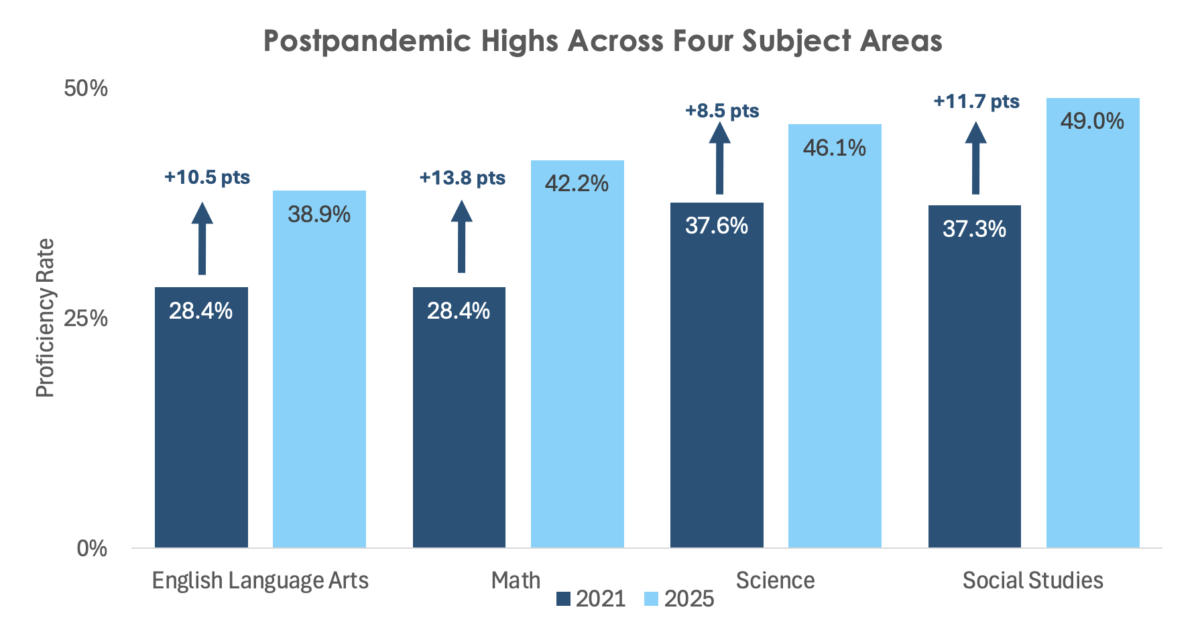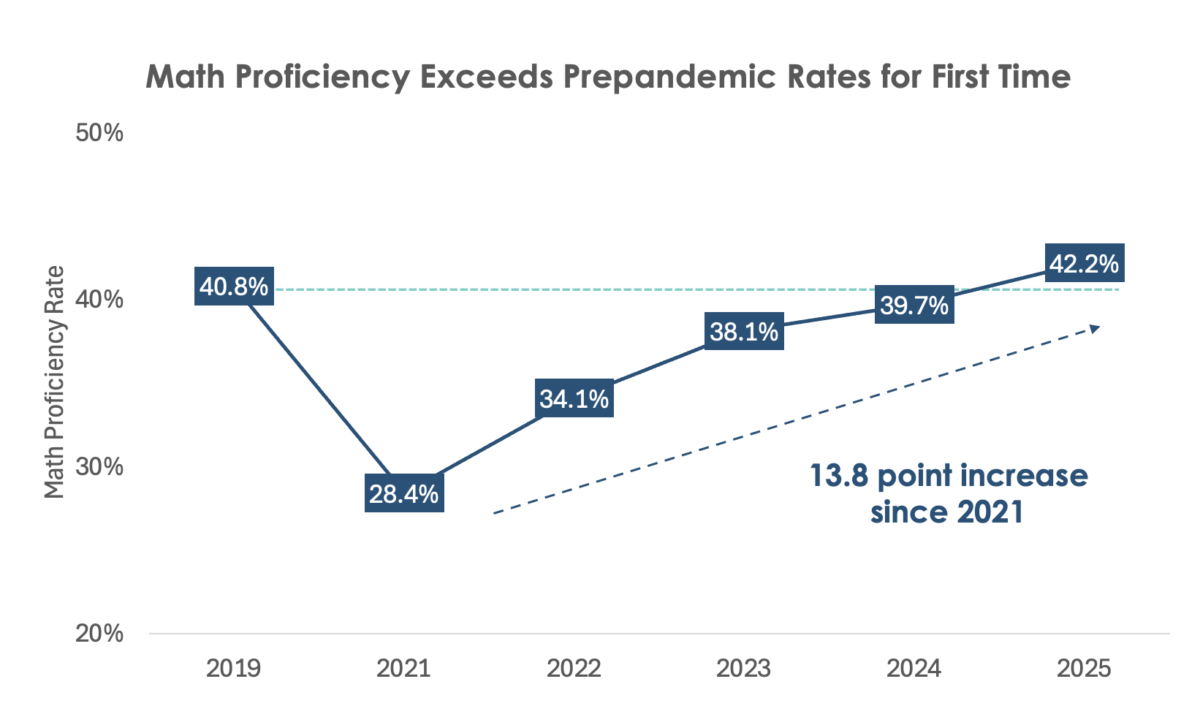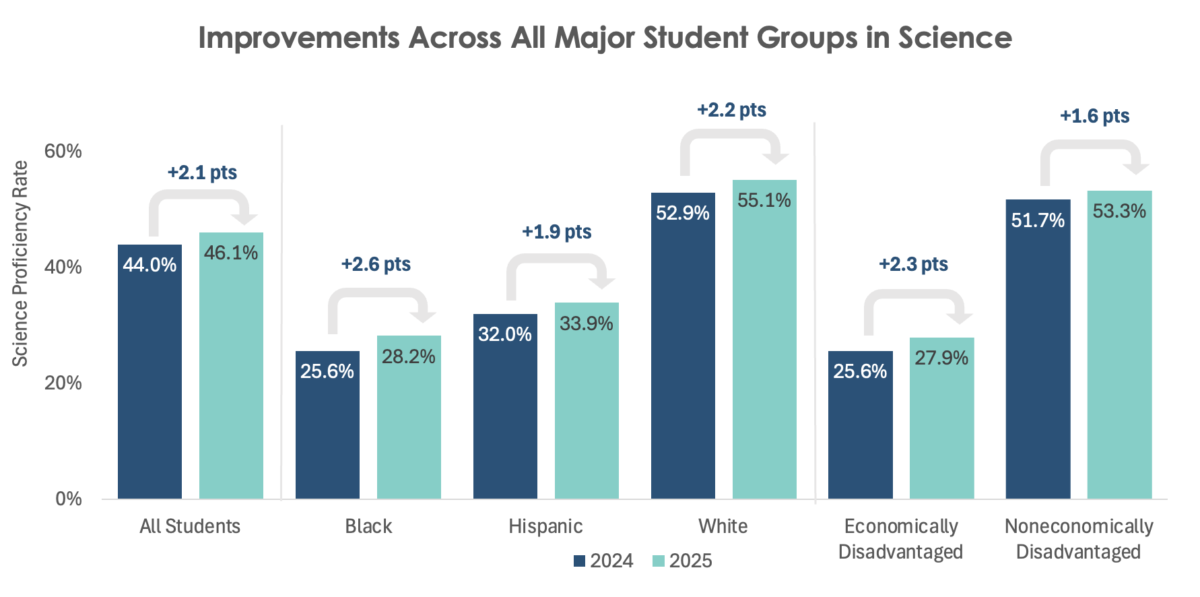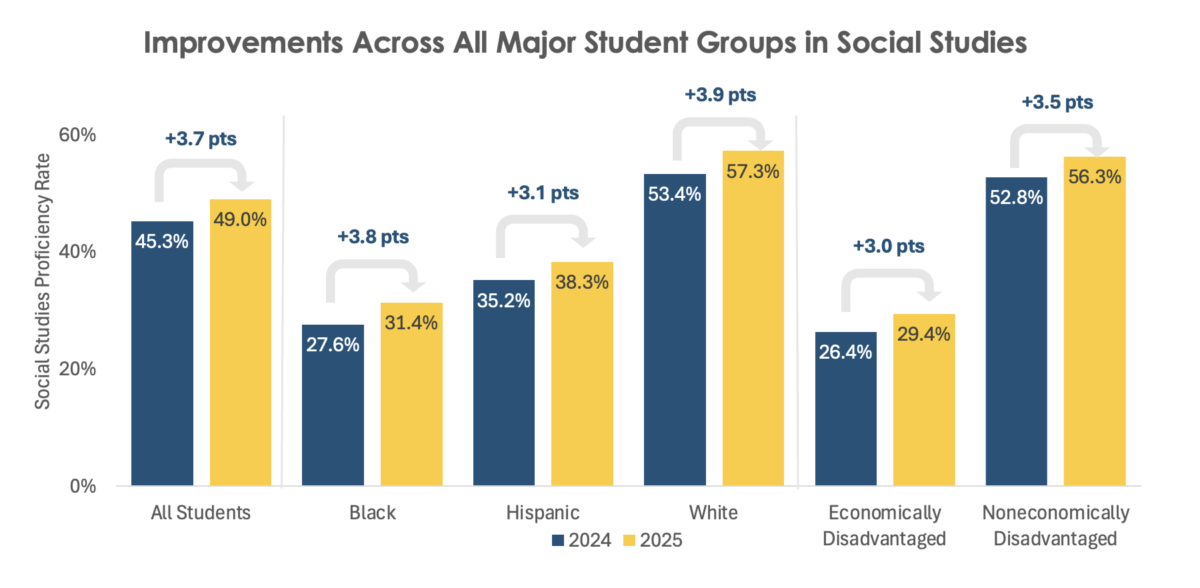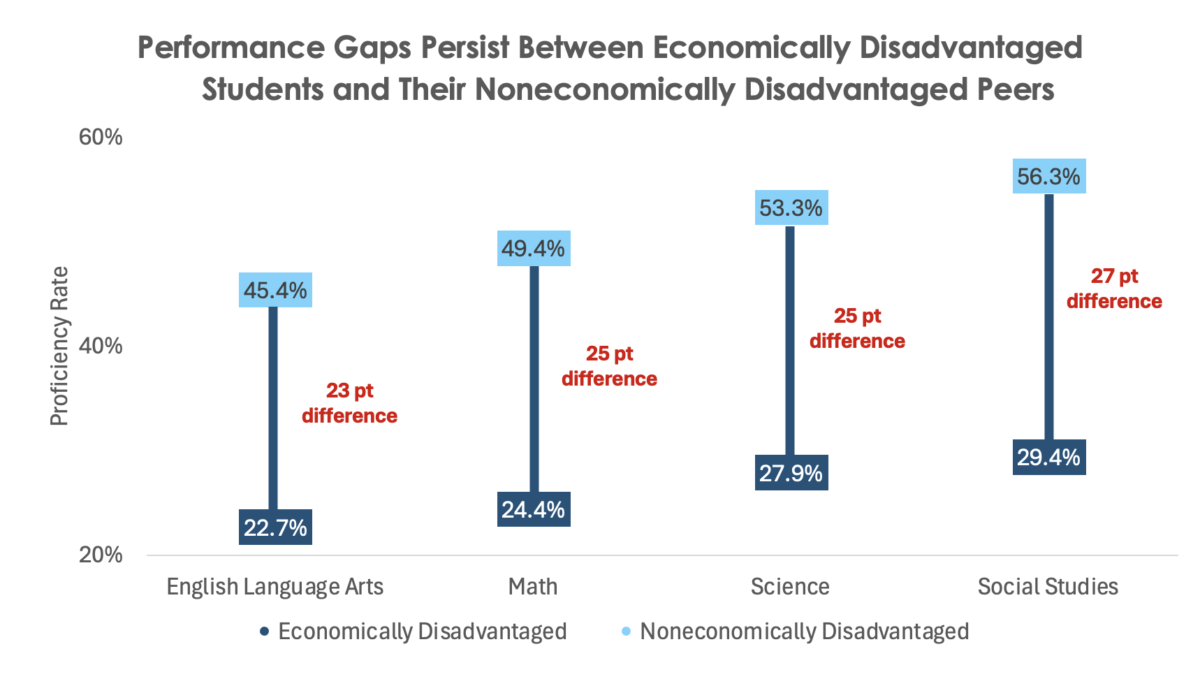Commentary on the 2025 TCAP Data: Our Compass for the Work Ahead
Stock photo of students studying (Photo by SCORE)
This analysis originally appeared on the SCORE Perspectives blog.
The annual release of the Tennessee Comprehensive Assessment Program (TCAP) results is a highly anticipated moment. This year, we’re proud to see that Tennessee students continue to be on an upward trajectory — proof that consistent evidence-based policies, student-centered strategies, rigorous standards, and the resilience of our students and educators are yielding tangible results. From record proficiency in third-grade ELA to math scores in grades 3-8 that now exceed prepandemic baselines, the numbers speak clearly. Yet, beneath every gain lies a question: Where do we need to double down, and where do we need to act more boldly to ensure ALL students achieve success?
Here, we unpack five key insights from the 2025 TCAP results that acknowledge our wins, surface persistent gaps, and chart the course for the work ahead.
Students Show Consistent Gains Across All Core Subjects in Grades 3-8
In grades 3-8, we have reached a postpandemic high in all four subject areas (ELA, math, science, and social studies).
Additionally, across all four subject areas, all major student groups made progress between 2024 and 2025.
Math Gains Accelerate, Surpassing Prepandemic Levels Statewide
Statewide math proficiency in grades 3-8 has exceeded prepandemic levels for the first time, sitting at 42.2%, meaning 11,000 more students are proficient as compared to last year.
In high school math, we saw proficiency increases in every subject area, and an additional 828 students reached proficiency in Algebra I — a key predictor of postsecondary readiness.
Growth between our postpandemic low in 2021 and 2025 is roughly 14 percentage points and is spread across student groups.
While growth in math has been consistent since the pandemic, the share of students in the lowest performance category has not returned to prepandemic levels.
Sustained ELA Progress Signals Long-Term Literacy Gains
For the third year in a row, third-grade ELA proficiency improved and now sits at a record high of 41.7%.
Additionally, the percentage of students scoring in the lowest performance category in third-grade ELA reached the lowest rate we have seen since before the pandemic, while the percentage of students scoring in the highest performance category also holds steady at a record high of 14.2%.
In high school ELA, we saw proficiency increases in both English I and English II, resulting in 2,153 additional students achieving proficiency in English I, and 1,730 additional students achieving proficiency in English II.
Science and Social Studies Show Consistent Growth Across Student Groups
In grades 3-8, we saw strong growth across student groups in science and social studies.
Statewide, proficiency rates grew by 2 percentage points in science in grades 3-8, and these gains are consistent across all major student groups.
Roughly half of all students in grades 3-8 are proficient in social studies, meaning over 8,000 additional students are proficient in 2025.
Gaps Persist for Students in Historically Underserved Groups
Across all grades and subject areas, large and concerning gaps persist between economically disadvantaged and noneconomically disadvantaged student groups.
Across all four subjects, economically disadvantaged students in Tennessee are more than 20 percentage points behind their noneconomically disadvantaged peers.
Additionally, Black/Hispanic/Native American (BHN) students in Tennessee are more than 20 percentage points behind their non-BHN peers across all four subjects.
Reflecting on TCAP Results and Mobilizing Around Data to Drive Change
David Mansouri (Photo by SCORE)
The 2025 TCAP results capture both our progress and our challenges. We’ve made a lot of progress, but even historic levels of proficiency don’t meet our goals or expectations. Assessment data serve as our compass, guiding decisions at every level — from targeted classroom intervention to statewide policy — to turn these insights into gains for students. We must couple the data with intentional and bold action.
In 2024, we set ambitious TN2030 goals to ensure every Tennessee student is prepared for college, career, and life. Yet the current proficiency rates of 41.7% in third-grade ELA and 38.7% in seventh-grade math, while on the right track, fall short of the benchmarks we set for 2030 and the ultimate aspirations we have for all students to achieve success.
To see continued improvement at a more accelerated pace and deliver measurable gains for every student in our state, we must recommit to targeted strategies, scale what works, and innovate where gaps remain.
David Mansouri serves as the President and CEO of SCORE.
(A note of thanks to Lawand Yaseen, SCORE’s senior data and research analyst, for the data analysis and insights highlighted here and in SCORE’s work this week.)



